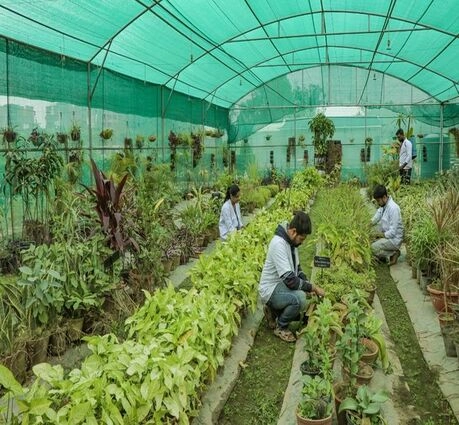Master of Science in Agronomy is an agricultural sciences postgraduate academic course that is devoted to the integrative application of plant and soil sciences with an aim of maintaining soil health as well as maximizing crop yields. The syllabus aims to equip learners with extensive theoretical as well as experiential expertise in a broad range of subjects related to managing crops and soil. Core subjects in the programme are modern crop production principles, drought physiology, the role of herbicide application on crop yield, dynamics of crop nutrition, physiological processes in crop growth, advanced irrigation practices, and working of agricultural research institutes. Other relevant areas of study are crop ecology at an advanced level, conservation-oriented agronomy, arid zone agronomy, farm and cropping system designs, and agro-meteorology. With successful completion, graduates are furnished with the expertise to undertake a wide range of professional career opportunities in academic research, agricultural consultancy, government organizations, agro-industrial companies, and international agencies working in sustainable agriculture and food security.
Duration of programme
Level of Study

Crop management and production techniques for diverse agricultural systems.
Weed control, pest management, and integrated farming systems
Soil fertility, nutrient management, and sustainable agricultural practices
Agricultural research, data analysis, and advanced farming technologies.
B.Sc. in (Agriculture), or any other relevant equivalent degree
SC/ST/OBC/GEN- 50%